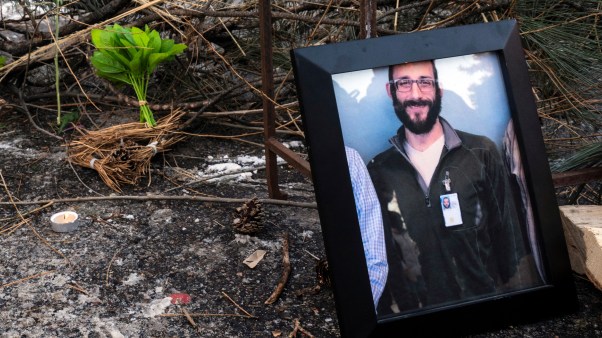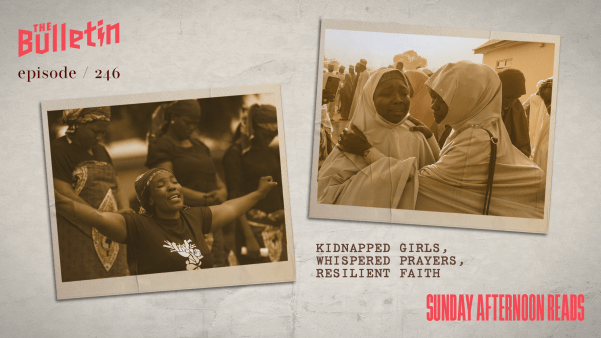As a current grad student, I spend a lot of time in classroom settings. Recently, I attended an intensive course with peers who are mostly a little older than me and further along in their careers. While I’ve been graciously mentored by many of them, I’m also keenly aware of my innocence and naivety. I often feel nervous to ask questions out of fear of being seen as ignorant at best or politically incorrect or insensitive at worst.
There are certainly natural pressures to being the youngest person in a room. But after the course, as I thought through why I had felt nervous, I realized this was about more than age or experience. Sometimes the fear of even asking a question the wrong way prohibited me from asking questions at all. I delicately crafted my clarifications or comments so as not to accidentally offend, exclude, or reveal unconscious biases. I spent so much time playing devil’s advocate to myself that my priority became saying the right thing instead of learning.
There’s no shame in wanting to be inclusive and sensitive to the people around you. It’s biblical, even. Take Ephesians 4:32: “Be kind and compassionate to one another, forgiving each other, just as in Christ God forgave you.” Minding our words is commended in the Psalms (19:14; 34:13; 141), in Proverbs (chapters 12, 13, 15), in the Gospels, and in the letters of Paul, Peter, and James.
But in this case, my anxiety wasn’t rooted in appropriate regard. Instead, I was afraid of being canceled—by which I don’t mean held appropriately accountable for my actions, but rather shamed and ostracized for perceived wrongdoing.
The right often criticizes the left for fostering cancel culture. But in my experience, cancel culture exists across political environments, even in classroom settings where I’m trying to learn from others. At my conservative college, I felt as if I had to walk on eggshells when I asked questions about sexuality, abortion, and the inerrancy of Scripture so as not to seem unorthodox. In my more progressive circles, I thread the needle when I ask about affirmative action, globalization, and colonization.
Indeed, cancel culture is a real problem on university campuses. I heard of one student at a secular university who was blacklisted for an autobiographical senior art project because it explored touchy issues around sexuality. Last summer, communities of students were shattered over disparate positions on the Israel-Hamas conflict. The atmospheres of places where we’re supposed to be free to inquire have become quick to label, quick to judge, and slow to offer the most generous interpretation of others’ words.
But cancel culture isn’t exclusive to college. I find it impacts all our spaces of formation—and that’s something we as Christians should be concerned about.
Cancel culture leaves no space for reconciliation, curiosity, or community. It sorts sheep from goats with an ever-changing set of standards for judgment. Canceling is based on relative right and wrong, often determined by political fads instead of gospel truths. When it happens on social media, it is done rapidly and anonymously, relying on a crowd mentality to enact its inconsistent justice.
Cancel culture also thrives off fear. You will never know enough, do enough, or be enough to escape the threat. You can’t even sit still or keep silent. Even Christ, the most perfect person, could not escape cancel culture (see Matt. 27 and parallel passages). In Luke’s crucifixion account, Pilate says to the crowd, “As you can see, he has done nothing to deserve death” (23:15). Yet the people “kept shouting, ‘Crucify him! Crucify him!’” (v. 21).
How am I and other members of Gen Z supposed to be discipled in today’s cultural environment when the threat of cancellation looms? Can I ask questions—in church, at school, among friends—that are not a virtue signal of my ideologies or perceived as politically charged? Where can I find grace when I make a mistake?
Since we Christians are moving through the process of sanctification, the Bible assumes we won’t have all the answers. Proverbs 3:5–6 states, “Trust in the Lord with all your heart and lean not on your own understanding; in all your ways submit to him, and he will make your paths straight.” Romans 11:33 proclaims, “Oh, the depth of the riches of the wisdom and knowledge of God! How unsearchable his judgments, and his paths beyond tracing out!”
In response to his disciples’ many questions, Jesus doesn’t sneer. He tells parables then asks more questions. Before Jesus tells the parable of the Good Samaritan, someone inquires, “What must I do to inherit eternal life?” (Luke 10:25). Instead of directly answering, Jesus tells the story of three men passing an injured person. At the end, he turns to his listeners for an interpretation: “Which of these three do you think was a neighbor to the man who fell into the hands of robbers?” (v. 36).
Jesus may gently correct his followers for their lack of understanding (like when he says, “Where is your faith?” after he calms the seas in Luke 8:25), but he doesn’t cast them out of the group. When Peter denies Jesus three times, fearing he will be labeled an outcast associated with the man sent to the cross (John 18:15–18), Jesus does not cancel Peter. Instead, he redeems him three times, once for each denial (21:15–19). Jesus cares about helping his followers grow in wisdom, not about offering “in or out” rubrics.
Cancel culture is the antithesis of this model of discipleship, especially in spaces of formation and development. Instead of confessing sins, expressing doubts, and searching for answers together, we have social media approbation and systemic unforgiveness that lead to insecurity and isolation. The fear I experience at school, at work, in small groups, or even in my social circles of suddenly being labeled as hurtful, manipulative, or insensitive leaves me with less space to know others and be known. If no one is going to help me work through thorny problems or constructively correct me when I falter, then I must be alone.
By contrast, discipleship never happens in isolation. Though content can disciple us for good or for bad—TikTok videos and clickbait, or sermon podcasts and theology textbooks—we are ideally making sense of those inputs with others, with mentors and peers alike. That requires vulnerability and trust.
I find baking bread a useful metaphor that helps me learn something about God. The process reminds me of our mandate to create. I extend grace to myself when I mess up. I practice patience and experience delayed gratification.
I can certainly bake alone using cookbooks, YouTube videos, or Instagram Reels to guide my technique. But when my grandma teaches me how warm the water needs to be, when my mom shows me how to knead dough and not overwork it, and when I get to share the finished product with friends and family, the experience is all the more satisfying.
Discipleship is about being taught—but it’s also necessary to include others in our learning. That can look like small groups that create safe spaces to live life authentically together, or like a mentor and mentee meeting over coffee. Discipleship can be office hours at school with a professor, walks with a family member, or a meal after church with friends. But all these forms of community become impossible if we’re afraid of being ostracized when we slip up. The foundation of cancel culture is fear. The foundation of discipleship is grace.
Mia Staub is editorial project manager at Christianity Today.


















